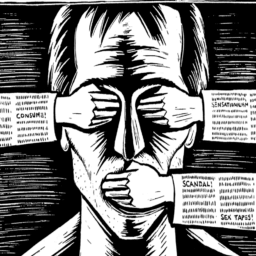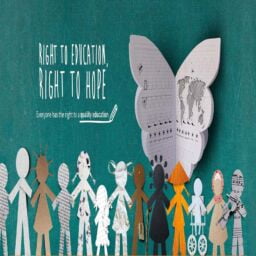
Aristotle – “The worst form of inequality is to try to make unequal things equal”
Whether it is a district court in Chennai, the High Court of Bombay, or even the Supreme Court and Parliament in New Delhi, the interpretation of the Right to Equality across India has been a key issue of contention between sides bringing in their own understanding and discourse of how equality can be interpreted. There are serious debate and discussion regarding understanding religion, class, and caste keeping in mind the present-day situation as well as the vision of BR Ambedkar and the constituent assembly. The difference in opinion has often spilled onto the streets and caused havoc across the country. The clashes have been through dialogue in news studios, violence in different states, art and theatre, literature, and cinema; all representing a multitude of meanings that arise with regards to the rights of ‘we the people’. One of the most keenly contested aspects of the Right to Equality is the exception under it which gives the right to Reasonably Classify laws. The right has been bestowed keeping in mind the disadvantageous society that we reside in with a glaring disparity of wealth, opportunity, and access to basic needs amongst many problems. While reasonable classification is necessary and a valid exception to the Right to Equality, it should not be misconstrued and used for ulterior motives and political gains.
Reasonable classification under the Right to Equality (Articles 14-18) allows for a form of positive discrimination[1] that essentially permits law-making which can be beneficial for a certain group of people. This is done keeping in mind the importance of having equality in a country that has scores of different communities and must grant equality of opportunity to people regardless of who they are. However, certain nuances that are necessary for terms of understanding the exception must be stated. Even in reasonable classification, the subject matter must be looked upon with all fairness and equality. There are certain legal tests that must be passed keeping in mind the belief Some examples of exceptions are reservations and religious laws.
The two tests under the exception being that of intelligible differentia, which is built upon separately recognizing things or people that are not grouped together. The other test is that there must be a form of reasonability that can be adhered to in the given scenario. The scope of the law must be reasonable in the eyes and objective of the law that is being dealt with. It must not be arbitrary or be outright discriminative in any sense whatsoever and should relate to the law that is being formulated. In the case of State of West Bengal v Anwar Ali Sarkar (AIR 1952),[2] Justice Das laid down that these two conditions must be passed in order to be counted as a form of Reasonable Classification.
What we must first understand is that the Right to Equality is not restricted in its scope of interpretation. The argument stems from certain sources, the foremost of which is the demographics of our country and its impact on laws such as those of reservation or provisions for women and children. In India, equality does not only pertain to the exclusion of class and religious differences. It has been framed in a manner that expands its ambit to ensuring equality for historically oppressed or side-lined castes, tribes, marginalized communities, and genders amongst many. There are thousands of minority communities that are grouped together and are officially recognized by the government. Hence, under Article 15 of the Constitution, they are given certain privileges to help integrate[3] and assist them in gaining an economic and societal foothold which has been denied to them in the course of history. This comes in the form of reservations, quotas, and even grants. Equality is never absolute and is always related to inclusiveness and diversity. Hence the necessity to separate those who require social upliftment leads us to the reasonable rationale behind classifying certain people under various categories.
Indra Sawhney v. Union of India (1992)[4]was a landmark judgment which not only brought about a reservation cap at 50% but also differentiated what the bench referred to be the ‘cream layer’ of OBC’s. The reasonable inference was regarding those amongst OBC’s who were denied reservation because they had overcome or surpassed their social backwardness. Historically, we see that the caste system has discriminated against certain individuals. Can we really treat upper castes and lower castes equally? This will only further the scope of discrimination, not alter mindsets and will put lower castes at a disadvantage and not change their status in society. They need a meaningful way out of their historical status in society. Even now, every single instance of discrimination that is mentioned in Article 15 and prohibited (race, class, sex, caste), continues to take place in our country. A big step towards its eradication is laying down concrete laws.
Both the aforementioned cases had a 9 judge bench which ruled in a 6:3 ratio. However, while the outcome was different, the similarity was that both courts recognized the meaning of reasonable classifying people’s rights in accordance to what was required in their respective and not demanded individually. In other words, Reasonable Classification is not a tool to separate based on personal will and vendetta, rather a mode of encouraging affirmative action in a society.
For centuries there has been discrimination and violence against citizens within our country on countless bases, some of which include religion, caste, gender, and class. Riots, clashes, and protests have marred the Constituent Assemblies’ vision of what our country was to post 1947. However, time and again our judiciary has stepped forth and claimed what rightfully belongs to the people. No bigoted government, no matter how deeply entrenched in its own ideology, can take away a person’s right to be treated equally under the eyes of the law. Having said this, I feel that reasonable classification has allowed our country to truly believe in living up to the Preamble and its aims. What Aristotle said thousands of years ago, is what we practice and preach to this day. It is a necessity that has helped our country see light. There is a reason why the Right to Equality and reasonable classification is fundamental to our Constitution. Because had it not been there, there would have never been a scope to build upon what our preamble lays down. The very meaning of it would have been lost if we continued our treatment of people based on social and religious constructs and not core features such as liberty, fraternity, and most importantly, equality.
Author(s) Name: C.C. Chengappa (OP Jindal Global University, Sonipat)
[2]1952 AIR 75
[4] Indira Sawhney vs. Union of India, MANU/SC/0771/1999
















